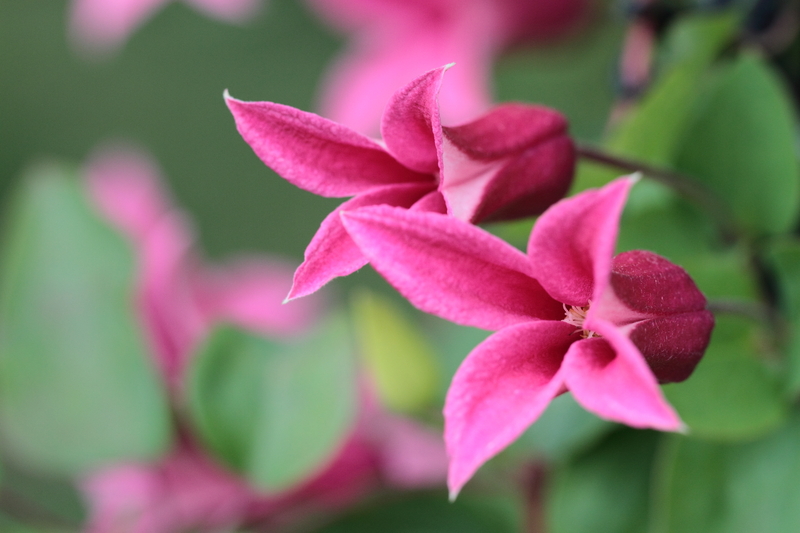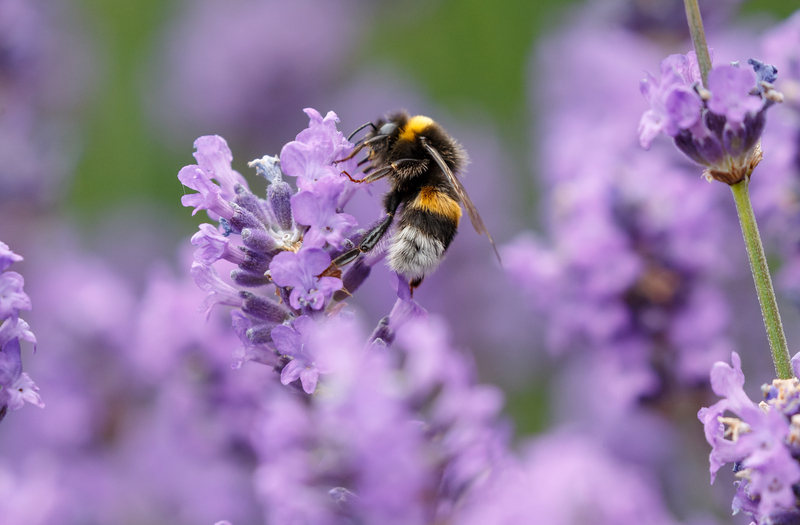From Waste-Bins to Rich Terra: Soil Transformation
Posted on 02/10/2025
From Waste-Bins to Rich Terra: Soil Transformation
Soil transformation is emerging as a fundamental practice in sustainable living and ecological restoration. The process of converting kitchen scraps and green waste from household waste-bins into rich, productive soil--often referred to as "terra"--represents an important cycle in environmental stewardship. This comprehensive guide explores every facet of soil transformation, from waste bins to rich terra, outlining the science, best practices, benefits, and real-world success stories. Let's uncover how you can turn garbage into gold, right in your backyard.
Understanding Soil Transformation: From Waste to Wealth
At its core, soil transformation refers to the methodical process of turning organic wastes into nutrient-rich soil amendments. By leveraging natural decomposition and clever techniques, households and communities can create fertile "terra" that feeds gardens, promotes plant health, and reduces landfill burden.
- Composting: The most common route for transforming waste into soil.
- Vermiculture: Leveraging worms to accelerate decomposition.
- Bokashi: A fermentation-based method popular for indoor waste conversion.
Each approach relies on the decomposition of organic matter by microorganisms, with the end result being a dark, crumbly, earthy material rich in nutrients--the very foundation of sustainable gardening and agriculture.

Why Soil Transformation Is Important
Our planet faces a multitude of challenges: from soil degradation and declining fertility to the problem of burgeoning landfills. Transforming waste into healthy soil is a direct answer to several key issues:
- Reduces landfill waste: Kitchen scraps and yard clippings constitute 28% of landfill input; soil transformation drastically lowers this figure.
- Fights climate change: Organic waste in landfills produces methane, a potent greenhouse gas. Composting eliminates this issue.
- Restores soil fertility: Rich composted soil replenishes nutrients depleted by intensive agriculture.
- Boosts food security: Healthier soils deliver more abundant, nutrient-rich crops.
Key Benefits of the Waste-Bins to Rich Terra Process
- Cost savings--fewer chemical fertilizers needed.
- Enhanced biodiversity in gardens and urban green spaces.
- Improved water retention in soils, reducing irrigation needs.
- Supports pollinators and beneficial soil organisms.
The Science Behind Composting: Natural Alchemy
Soil transformation is more than tossing banana peels on a heap--it's a carefully balanced ecosystem where microbes, oxygen, moisture, and carbon/nitrogen ratios interact.
The composting process consists of several stages:
- Mesophilic phase: At temperatures up to 40?C (104?F), common bacteria and fungi kickstart decomposition.
- Thermophilic phase: Temp rises to 60?C (140?F); specialized heat-loving microbes break down tougher materials.
- Cooling/maturation: As readily digestible material disappears, the pile cools and earthworms/soil organisms move in, creating mature compost.
Essential ingredients:
- Greens (nitrogen-rich): kitchen scraps, coffee grounds, fresh grass clippings.
- Browns (carbon-rich): dried leaves, cardboard, woody stems.
For optimal soil creation from waste, a green-to-brown ratio of about 1:2 is best, with periodic turning to aerate the mixture and speed up the transformation.
Role of Microorganisms
Bacteria, actinomycetes, fungi, and protozoa are the unsung heroes. Without these minute workers--plus earthworms in vermicomposting--your waste would never turn into rich, living soil.
Methods for Transforming Waste-Bins into Rich Terra
Traditional Backyard Composting
Open Pile Method: Layer organic materials in a heap, occasionally turning it. Basic and effective for gardeners with space.
Compost Bin Method: Enclosed systems hold moisture and heat better, keeping pests out and speeding up decomposition--a neat option for suburban homes.
Vermicomposting: Worm-Powered Waste Conversion
Red wigglers (Eisenia fetida) are the best composting worms. Given a bin and a bedding of moist newspaper, they consume their body weight in scraps each day, leaving behind worm castings--an especially potent soil amendment.
Bokashi: The Indoors-Friendly Solution
Bokashi composting uses effective microorganisms (EM) to ferment, rather than decay, kitchen waste. The process is anaerobic, pest-proof, and produces zero odor--perfect for apartments.
Municipal and Community Composting
Many cities now offer green bin collection, funneling household organic waste into large-scale composting operations. Community gardens often create hot piles, using collective waste to produce large volumes of nutrient-rich terra.
Step-by-Step Guide: Transforming Your Waste-Bin Contents into Terra
- Collect waste smartly: Dedicate a pail for kitchen scraps (vegetables, fruit peels, coffee grounds--avoid meat/dairy for home compost). Keep it covered to prevent pests.
- Choose your composting method: Bin, pile, worm box, or bokashi--pick what suits your space.
- Layer and balance: Alternate greens (wet, nitrogen-rich) and browns (dry, carbon-rich) in a roughly 1:2 ratio.
- Maintain moisture: Compost should feel like a wrung-out sponge. Too dry? Add water or more greens. Too wet? Stir in browns like shredded cardboard.
- Aerate regularly: Turning the pile every 1-2 weeks supplies oxygen, accelerating the breakdown and preventing odor.
- Harvest your compost: In 3-9 months (faster with hot piles, slower in cold weather), your pile will shrink and turn dark brown. Sift and store the finished compost for use.
Pro Tips for Richer Terra
- Chop waste into small pieces--increases surface area, speeds up decomposition.
- Avoid glossy paper, large branches, and oily foods--they slow down or contaminate the process.
- Add some finished compost or garden soil when starting--inoculates pile with beneficial microbes.
- Monitor temperature--hot piles (135?F-160?F) destroy pathogens and weed seeds.
Common Pitfalls (and How to Avoid Them)
- Unpleasant odors: Usually from too much green/wet waste or poor aeration. Solution: add browns, turn pile more often.
- Pest issues: Meat, dairy, or cooked foods attract animals. Stick to plant-based waste and use enclosed bins.
- Pile too dry or too wet: Adjust water content and material balance as needed.
- Slow decomposition: May need more frequent turning, smaller particle size, or more balanced C:N ratio.
The End Product: What Makes Rich Terra?
The goal of soil transformation is rich terra: a friable, earthy-smelling, dark material teeming with microbial life. This black gold is loaded with:
- Nitrogen, phosphorus, and potassium (NPK): Essential for plant growth.
- Trace minerals: Like calcium, magnesium, and iron for robust plant health.
- Organic matter: Improves soil structure, moisture retention, and aeration.
- Beneficial microbes: Outcompete plant pathogens, aid nutrient uptake, and foster resilient gardens.
Your garden, houseplants, or landscaping will thrive with the addition of homegrown compost. You'll see improved plant vigor, better flowering, higher yields, and increased drought tolerance.
How to Use Your Compost
- Mulching around plants: Retains moisture, inhibits weeds.
- Topdressing lawns: Builds soil health and lushness.
- Blending into potting mixes: Boosts nutrients for indoor/outdoor pots.
- Digging into garden beds: Restocks depleted soils before planting.
Community and Commercial Impact
Beyond the home, soil transformation from waste is revolutionizing agriculture and urban planning. Large-scale composting diverts millions of tons of organic waste, restoring degraded soils, and reducing dependence on fossil-based fertilizers.
- Community gardens and urban farms rely on compost to feed city-grown produce.
- Regenerative farms use compost as a core tool in rebuilding topsoil and combating erosion.
- Cities like San Francisco and Toronto collect residential food scraps, turning waste into rich terra for vineyards, parks, and public works.
Success Story: New York City's Green Bin Program
In 2023, NYC's food waste collection turned over 200,000 tons of discarded food into compost for parks and gardens, dramatically cutting waste management costs and greening neighborhoods. Residents saw tangible rewards--from more vigorous trees to vibrantly blooming community flower beds.
Advances and Innovations in Waste-to-Soil Transformation
With growing awareness of climate, new innovations are making soil transformation from organic waste more accessible than ever:
- Smart composters: Automated, odorless indoor units that cycle waste in weeks.
- Biochar integration: Adding carbon-rich charcoal stabilizes nutrients and locks climate-warming carbon in the soil.
- Fungal decomposition: Specialty composts featuring mycelium break down stubborn materials faster.
Businesses and startups are harnessing AI, sensors, and Internet of Things (IoT) devices to optimize large-scale composting and track soil health gains over time.

Frequently Asked Questions About Waste-Bins to Rich Terra
Is composting safe for children and pets?
Yes! In fact, involving kids in composting teaches life-long sustainability values. Ensure finished compost is fully decomposed before use and avoid composting pet waste in home systems.
How long does it take to turn kitchen waste into rich soil?
Depending on method and conditions, transformation takes from 3 months (hot piles, diligent turning) to 9 months (passive cold piles or winter). Vermicomposting and bokashi can be faster for small batches.
What kitchen wastes are safe to compost?
- Fruit and veggie scraps
- Coffee grounds and filters
- Tea bags (plastic-free)
- Eggshells (crushed)
- Bread and grains (small amounts)
Avoid oily foods, meats, dairy, diseased plants, and glossy/coated papers.
The Future: Closing the Loop, Healing the Earth
Soil transformation is more than a gardening trend; it's a movement that closes the loop on resource use and regenerates our natural world. Every banana peel saved, every yard of compost spread, is a step toward reversing decades of soil depletion and meeting the challenge of feeding a growing population sustainably.
Whether you're an apartment dweller with a desktop worm bin or a rural household with acres to enrich, transforming waste-bins into rich terra is an achievable, rewarding act of stewardship.
- Reduce waste
- Build healthy, productive soils
- Grow tastier food
- Protect the planet
Start Your Soil Transformation Journey Today
Your kitchen waste isn't trash--it's treasure. Join the millions who are turning their waste-bins into rich, fertile terra and experience the difference in your garden, your community, and your world.

